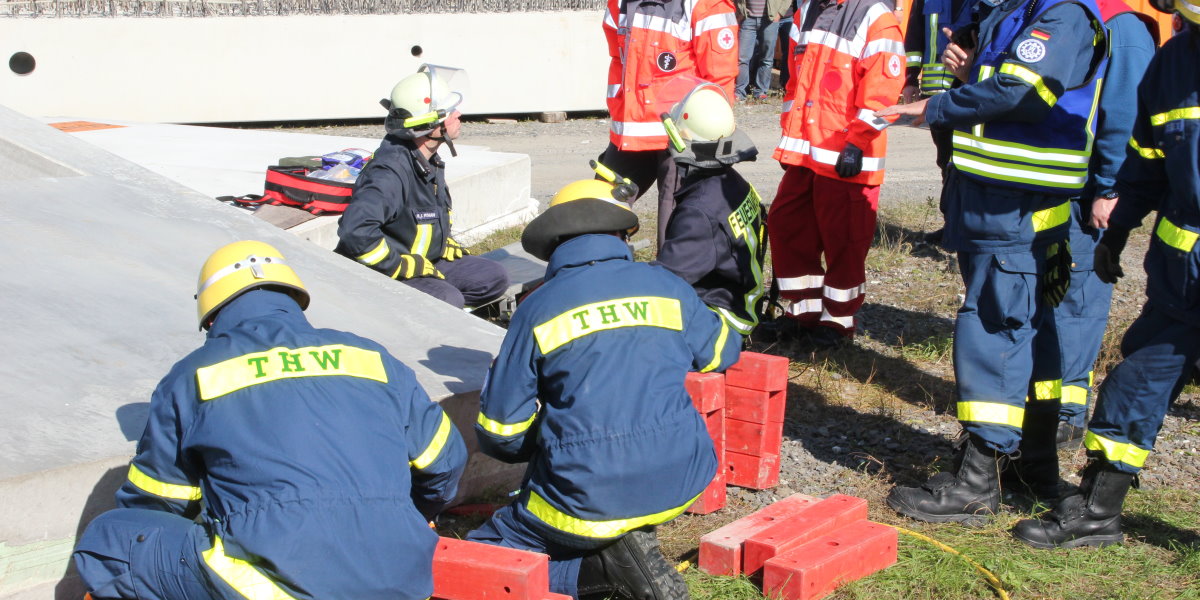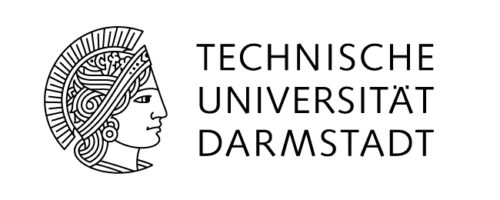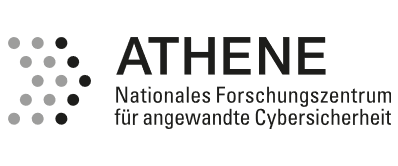
MOBILE RESILIENCE:
Designing Mobile Interactive Systems
for Societal and Technical Resilience
One-Day Workshop at Mobile HCI on 5th October 2020.
Organizers: Christian Reuter, Marc-André Kaufhold, Tina Comes, Michèle Knodt, Max Mühlhäuser
Programme
Abstract
Digitalization and interconnectedness, facilitated by the Internet of Things (IoT) and the widespread distribution of mobile devices, can be used to tackle important societal challenges. This is maybe most prominently visible in the response to the COVID-2019 Pandemic. However, the design of mobile technology, functionality and underlying infrastructures must be resilient against disruptions caused by man-made (e.g. bombings, hacking) and natural (e.g. earthquakes, hurricanes) crises, emergencies and threats. To explore challenges, designs and potentials of interactive technologies, this workshop investigates the overlapping space of mobile technologies and resilient systems, including future application domains such as smart cities.
Programme on 5th October 2020
The workshop will be held virtually via ZOOM. Please mail if you want to participate to receive the link: mobilehci@peasec.de
9h Opening; followed by paper presentations including interactive discussion
9:15h: Presentation 1: Crisis Informatics Challenges from a Political Science Perspective (Cornelia Fraune, Michele Knodt)
10:00h: Presentation 2: Crisis Volunteering Nerds: Three Months After COVID-19 Hackathon #WirVsVirus (Steffen Haesler, Stefka Schmid, Christian Reuter)
10:45h: Presentation 3: Information Sharing, Coordination and Decision Making (Tina Comes)
11:30h: Panel-Discussion on Ideas for Future Research
12:15h: Expected End
Description

Background
Today, in 2020, more than half of the world population already lives in cities. According to forecasts, this percentage will increase to two-thirds of the world population by the year 2050. Information and communication technologies are used increasingly to solve existing and rising challenges within cities. Thus, so-called smart cities emerge, which can be described as “a place where traditional networks and services are made more flexible, efficient, and sustainable with the use of information, digital and telecommunication technologies, to improve its operations for the benefit of its inhabitants” [9]. Cities are characterized by geographically concentrated complex interdependencies between social, natural, and technological systems that cause extraordinary challenges in times of crisis [10]. However, to achieve resilient ecosystems and societies as a whole, interdependencies with and innovations for current and future smart rural areas [14]must be considered.
While digitalization and interconnectedness can solve many challenges, others arise from it:
- How can the functionality of current and future smart cities or rural areas be secured in extreme situations, crises and catastrophes [15]?
- How can citizens participate in crisis response [3], [12]?
- How can big crisis data be prepared for a meaningful analysis, also mitigating the issue of information overload [7], [13]?
- How can the availability, integrity and reliability of critical infrastructures in digitally interconnected societies be improved in the future [1], [2]?
These are only some questions, which we, as a society, need to address in order to increase societal and technical resilience. In this specific context, resilience can be understood as “the ability of a [socio-technical] system to cope with perturbations such as crisis and shocks while preserving its functions” [5]. Furthermore, resilient systems are described by the characteristics of absorption, recovering, adaptation or transformation [16] and technologies for resilience by the properties of assessability, diversity, evolvability and usability, amongst others [8]. Importantly, all challenges combine technological questions with questions of legality, legitimacy, and ethical considerations that are shaped by the socio-political context.
At the same time, the research field of crisis informatics increasingly investigates the potentials and limitations of IoT [11] and mobile technologies such as crisis and warning apps [4]. They constitute a relatively new public service for citizens and are specifically designed for the dissemination of disaster‐related information and communication between authorities, organizations and citizens [6]. If critical communication or energy infrastructures fail, for instance, the distribution of warning messages is called into question and requires alternative infrastructures [1].
In this workshop, we want to explore the overlapping space that mobile interactive technologies and resilient systems offer as fields of research. Of particular interest is how to integrate mobile warning applications into smart city or rural infrastructure and how to interconnect both to mutual advantages that are technologically feasible and socially acceptable.
Goals
Goals of the workshop
Above everything else, we want to produce empirical findings related to design possibilities for resilient mobile and interactive systems. Furthermore, we aim at working out the state of research in the fields of mobile interactive technologies and resilient systems from multi-disciplinary perspectives. Lastly, avenues for further research and the potentials of both fields are within the scope of this workshop. Key topics of the workshop include but are not limited to:
- Case studies, surveys, use cases and theories on social and technological resilience, including application domains such as smart cities, urban environments and smart rural areas.
- Algorithms and systems for user-centered analysis of big crisis data, including social media analytics, credibility and relevance assessment, social sensors.
- Concepts and technologies for mobile stakeholder participation, including authorities, organizations and citizens, in smart cities and smart rural areas.
- Human and technical factors in decentralized infrastructures, edge computing and wide area networks.
- Innovative analysis, (interaction) design and evaluation of resilient (mobile) information systems.
- Usability and user experience of resilient technologies such as mobile crisis and warning apps or wearables.
- Best practices, methods and strategies for the development and deployment of resilient (mobile) technologies in diverse application domains, including smart cities.
Audience
This workshop is addressed to researchers that work in the fields of human-computer interaction, crisis informatics, emergency communication, mobile information systems and digitalization of human agglomerations. We expect to have about 20-30 attendees. To reach out to the community and recruit participants, there will be a website with information on the class and facilitators. The workshop and call for papers will be promoted in academic mailing lists and on social media channels to target relevant audiences.
Call for Papers
Call for Papers
- Short papers (Template: SIGCHI Extended Abstract) to cover some of the topics of the workshop.
- Submission deadline (extended): 15th of July 2020; Notification: 15th of August 2020
- Please note that all workshop participants must register for both the workshop and for at least one day of the main MobileHCI 2020 conference.
- Registration fees: 20€; Publication fees (ACM Digital Library - optional): 80€
- Contact and submission: mobilehci@peasec.de
Structure
Workshop structure
The workshop will follow a full single-day format. As indicated in the tabular schedule, we aim at structuring the workshop as follows: in two paper sessions of up to four contributions each, the accepted submissions will be presented concisely by the authors (8 min.) and discussed shortly in the audience (4 min.) to inform the workgroup sessions in the afternoon.
| Time | Activity |
| 09:00-09:15 | Introduction |
| 09:15-10:30 | Paper session I |
| 10:30-10:45 | Coffee break |
| 10:45-12:00 | Paper session II |
| 12:00-13:00 | Lunch break |
| 13:00-14:30 | Workgroup session I |
| 14:30-14:45 | Coffee break |
| 14:45-16:15 | Workgroup session II |
| 16:15-16:30 | Coffee break |
| 16:30-17:30 | Presentation and discussion session |
| 17:30-17:45 | Closing remarks |
To identify challenges and generate new ideas on how to analyze, design and evaluate resilient information systems in smart cities, two interactive sessions will follow: based on the topics of accepted submissions, the workshop organizers will propose 4-5 topics for group works in advance, which however can be amended based on the participants’ interests and feedback before they will be processed in two workgroup sessions. In line with the Knowledge Café method, for each topic, topic owners will be defined to moderate a topic at a flip chart across both workgroup sessions while other participants will switch between topics at a 45-minute interval, meaning two intervals per session. The results will be presented by the topic owner to the other groups for closing discussions in the final session to identify key challenges, potentials and implications for future research in the domain. Therefore, discussions and interactions among workshop participants will be cornerstones of this workshop.
Planned Outcomes
Through this workshop, researchers and practitioners will gain a deeper understanding of the challenges, design and potentials of mobile interactive technologies for resilience. This may also serve as a starting point for future collaborations or even research proposals. After the workshop, the results will be post-processed into a summarizing report and transmitted to interested participants. Furthermore, the instructors aim at publishing a special issue in an international journal informed by workshop contributions and results of our sessions.
Organizers










